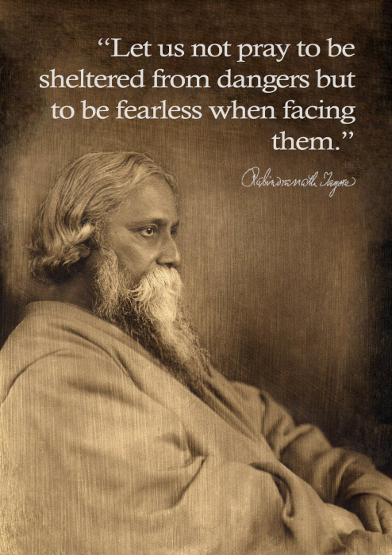Will some billionaire who intimidates the government sell your DNA to an enemy?
Do you think that Facebook’s indirect sale of political data on Americans and Britons, via Cambridge Analytica, led to national disasters?
Did you ever hear about “ethnic weapons?”
Back in the 1960s and 1970s it was at least a research topic for US war planners. But it was a major part of the European conquest of the Americas long before that. In modern times it would have its defensive as well as offensive applications.
In the Old World, people sometimes died of measles or smallpox. Usually they didn’t. In the Americas these diseases were unknown, so the natural defenses that came down through lineages of people who had survived these maladies when others died were not well distributed among the New World’s indigenous nations. The conquest involved all manner of intentional brutality and harsh enslavement, but the deadliest part of it was an accident of biology. The white men’s diseases spread through the Americas much more quickly than white people did.
Millions died, so that by the time English-speaking people started settling in North America they were encountering remnant cultures. Colonizers met nations that had been devastated by great plagues and then the social, political and cultural phenomena that generally follow upon such great calamities. It was comparable to how the Black Death ruined feudal economies, led to the abandonment of manors and towns and whole regions, undermined faith in religions and governments. It wasn’t too many steps removed – bubonic plague gave Europe the Wars of the Reformation.
The conquest of the Americas took a long time, and in the course of it there was some intentional use of ethnic weapons. Conquered nations were herded into reservations and given blankets that had been contaminated with pathogens that caused smallpox or other diseases to which those captive people had not resistance. The legend was surely more widespread than the practice, but it did happen.
In World War II, diseases allowed to spread through concentration camps were also used as form of warfare and genocide.
Now we have Google, one of the ubiquitous information systems monopolies, hired by giant health care company which seeks to have its patients’ health information stored on an Internet cloud and quickly searchable and retrievable and available for artificial intelligence research and development. The data for some 50 million people have fallen into the company’s possession.
Google, like Facebook, is a giant at “surveillance capitalism.” They take vast troves of information, develop ways to process and use it in specific ways, and sell this information. Like to Vladimir Putin’s troll farms, looking to influence elections in the United States, the United Kingdom and elsewhere with data obtained from Facebook.
What if some malevolent power, maybe not even a state actor, wanted a mass of medical data on a target population, to build ethnic weapons of the future? To know the common weaknesses and gaps in the immune systems of an entire nation, so as to gene-splice some new malady for military use?
‘Oh, that would never happen – we have strict rules….’ Uh huh. As if data never get stolen from big companies. As if hacker-proof defenses today will necessarily work against hackers 20 years from now. As if a traitor on the inside could never be bribed to sell information to an enemy.
The monopolistic powers and abuses of Google and Facebook have become issues in the Democratic presidential primary campaigns. From allowing tech billionaires to referee a nation’s political discourse, to monopolies that have smashed the old advertising supported news media business model, there are plenty of issues.
Do we use antitrust laws to break these companies up, and watch a generation of somewhat smaller offspring behave in much the same way? Do we just trust the bright people who oversaw the design of these useful information systems because, after all, isn’t everybody who has made that much money reasonable?
With national laws and international treaties, the world needs to ban surveillance capitalism. Would that make some huge tech companies lose so much of their economic value that they wouldn’t be able to carry on? Would that be a “taking” for the purposes of US constitutional law? In that case there might have to be compensation.
It’s good that Elizabeth Warren and Bernie Sanders have identified abusive and dangerous monopolies. But breaking Facebook and Google into smaller entities would probably not solve the existing problems, nor the ones we can at this point reasonably anticipate. Plus, notwithstanding the reprehensible business plans, Google and Facebook are useful and wonderful services.
We need to ban all sorts of corporate surveillance, beginning with the private possession of the medical information of millions of people who have never consented in any meaningful way to its commercial use.
The basic anti-monopoly solution is to leave Facebook and Google intact, but buy them with fair compensation to their owners and run them as not-for-profit public utilities. Wonderful and useful platforms and engines they may be, but nations and individuals should not have to run the many risks of their abusive private applications.

The threat has been out in the open for years. Government databases were mined for political blackmail purposes. Martinelli bragged about his spy operations against all Panamanians. It’s not a matter for the courts, but a matter of national defense, to crush this threat.
They talk about slick tweaks to the constitution, but not about THIS?
The Varela Leaks show Panamanians how we have been betrayed by so many leading characters in our nation’s life, and in so many ways. There was improper meddling with the justice system to protect the interests of major criminals, foreign and domestic. The United States intentionally put its finger on the scale to affect who owns Panama’s media — that we knew, but the leaks tell us even more about US policies and aims with respect to the information that’s available to people here. Public officials behaved in unbecoming ways.
All the makings for a titillating series of screaming headlines, as the limelight moves away from legislators holding sterile talks with their obsequious student acolytes to reduce the pressure of public protests.
But wait a minute — Varela’s communications with top officials while he was president were hacked and are now being published?
The media now screaming the loudest about it were improperly acquired by a Ricardo Martinelli using public funds?
The stolen Israeli surveillance equipment and its Pegasus spy programs, last seen in Ricardo Martinelli’s private office, has never been recovered?
Freed by a corrupt court decision, Martinelli is out on the streets threatening people?
And the business lobbies and political parties and election authorities and “Concertación” and all branches of national governments have nothing to say about the fundamental public safety, democratic freedoms and rule of law issues inherent in all this? As if constitutions are about boosting this interest and protecting that interest and denying the humanity of such-and-such part of the population, but have nothing at all to do with a nation defending itself?
#VoteNo. A constitutional discussion that fails to take into account the existence of private surveillance armies in our midst is malevolent, juvenile and disloyal to Panama. Of course whatever proposal we are given should be voted down.

Bear in mind…
Forever is composed of nows.
Emily Dickinson
He hoped and prayed that there wasn’t an afterlife. Then he realized there was a contradiction involved here and merely hoped that there wasn’t an afterlife.
Douglas Adams
A laugh is a terrible weapon.
Kate O’Brien
Contact us by email at fund4thepanamanews@gmail.com
These links are interactive — click on the boxes












